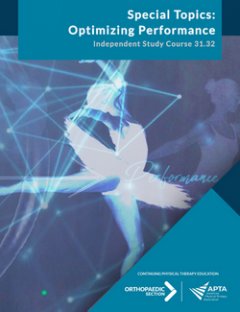30.32 - Special Topics: Optimizing Performance
NOTE: This 3-monograph course is included with the 6-monograph set, 30.3, Special Topics: Enhancing Performance Using a Mind, Body, Metric Approach.
Course Description
This course focuses on Optimizing Recovery and is a blend of timely and informative topics relevant to today's practicing therapist. Experts in the field discuss unique topics dealing with the mental performance applied to patient care and new innovations to include the use of wearables to track performance. Effectively treating runners of varied ability and how to return each to a high level are also covered.
I'm Interested in Bundling!
Course Overview
Course Format: Online with an option to purchase the print version
Contact Hours: 15 contact hours
State Approval: AOPT courses are accepted in all states plus the District of Columbia, as allowed by the type of course requirements in state regulations. A small number of states require APTA to seek pre-approval of courses. The approval codes for these states can be found here. Always check with your State Licensing Board to confirm contact hours offered.
View Full State Approval Information
You need to login to purchase this course. If you do not have an account, click on the box below and follow the instructions for creating an account.
Login or Create AccountPricing
| Online Only | Online + Hard Copy | |
|---|---|---|
| AOPT Member | $120 | $145 |
| Non-AOPT Member | $220 | $245 |
Cancellation Policy
Due to the automation of our learning management system allowing you instant access to the online content and the immediate order placement for a plus print product, there are no refunds after an order is placed.
International Shipping Policy
International shipping is NOT available when purchasing a plus print copy of our independent study courses. The online copy allows you instant access to any course with the ability to print a pdf copy. Note: APO and FPO addresses are serviced by the USPS and the Military Postal Service Agency and are available for plus print shipping.
Course Objectives
- Identify psychosocial strategies to enhance adherence to injury rehabilitation.
- Appreciate the role of an inter-professional approach to injury rehabilitation.
- Describe the varied uses of wearable technologies in clinical practice.
- Discuss the benefits and limitations of using wearable technologies in monitoring performance.
- Differentiate among training methods for runners with different levels of ability.
- Develop a return-to- running program based on a runner’s level of ability.
Topics and Authors
- Mental Techniques for Performance
Scott B. Martin, PhD, FACSM, FAASP; Rebecca Zakrajsek, PhD, CMPC®; Taylor Casey, MEd; Alexander Bianco, MS - Wearable Technologies for Monitoring Human Performance
Mike McGuigan, PhD, CSCS - Training Methodologies for Runners
Jerry-Thomas Monaco, PT, DPT, OCS; Richard G. Hubler, Jr., PT, DPT, OCS, FAAOMPT

